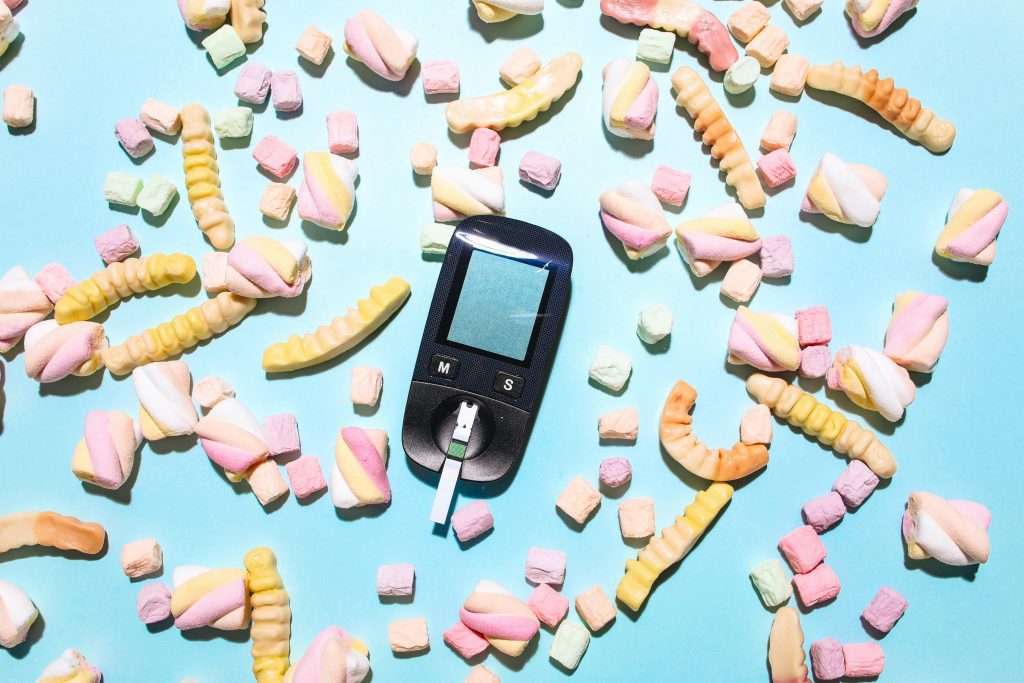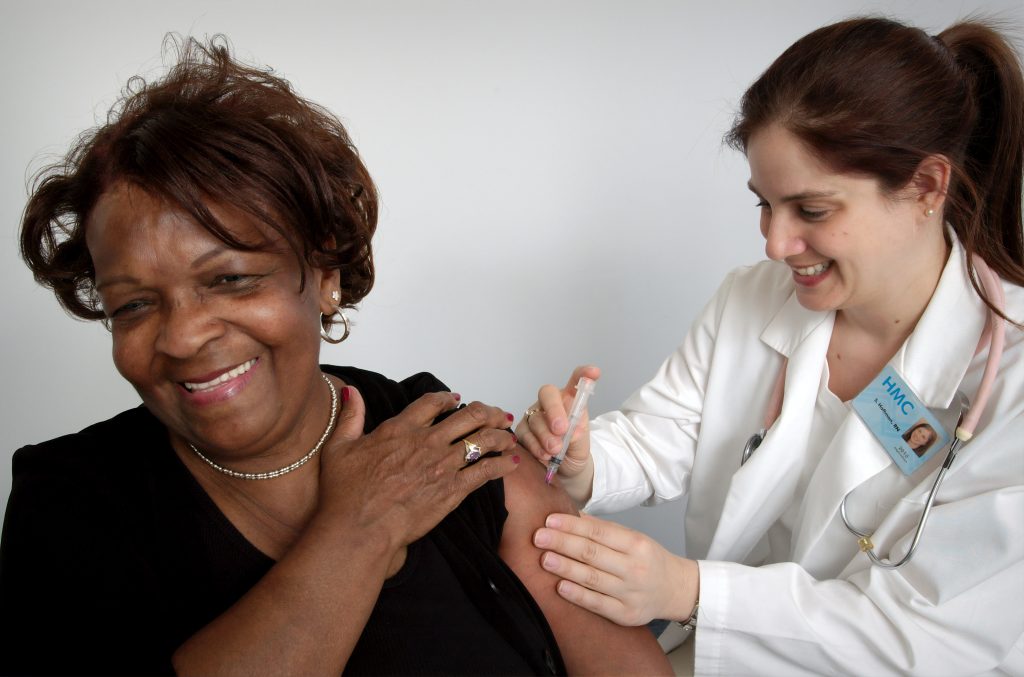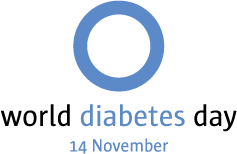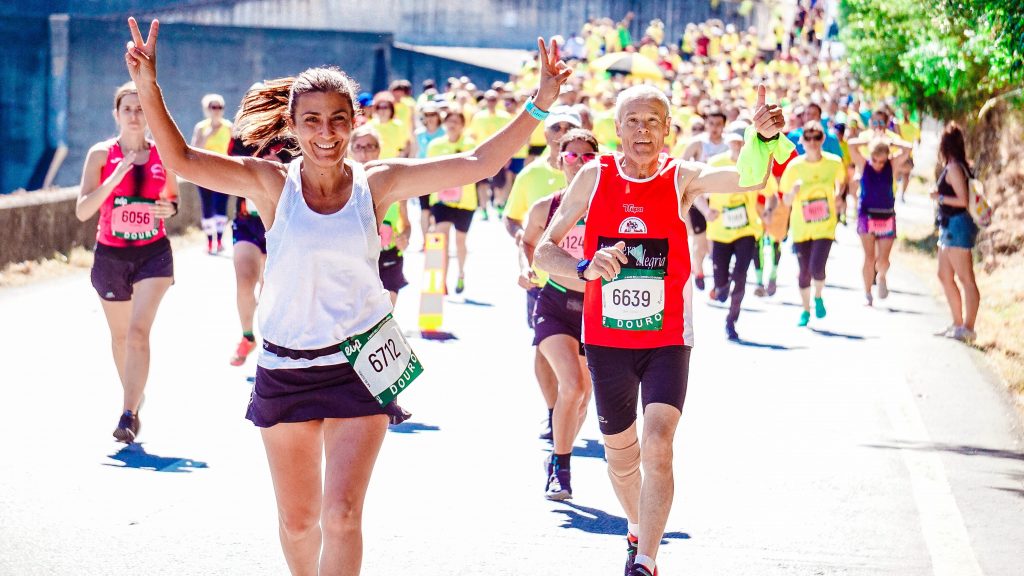World Diabetes Day is celebrated every year on November 14th to bring attention to the importance of diabetes worldwide. Diabetes is becoming the biggest epidemic of the 21st century across the globe!

463 million adults were living with diabetes in 2019.
That is the equivalent of 1 in 11 people living with diabetes, and about half of them had no idea. And according to a study from PubMed, the number of people living with diabetes is expected to rise to 578 million by 2030!
World Diabetes Day (WDD) was created due to concerns in regard to the increasing health threat posed by diabetes. WDD helps spotlight the need to take more action as a community and confront diabetes as a critical health issue worldwide.

Diabetes is a disease that occurs when your blood glucose, also called blood sugar, is too high.
Glucose is absolutely vital to your health because it’s an important source of energy for the cells that make up your muscles and tissues. It is also your brain’s main source of fuel! The underlying cause of diabetes varies by type. But, no matter what type of diabetes you have, it can lead to excess sugar in your blood. Too much sugar in your blood can lead to serious health problems. Chronic diabetes conditions include type 1 diabetes and type 2 diabetes.
The two major types of diabetes are:
- Type 1 diabetes, in which the immune system attacks the pancreas and destroys the cells that make insulin.
- Type 2 diabetes, in which the pancreas can still make insulin, but the body doesn’t respond to it properly.
In both types of diabetes, glucose cannot get into the cells normally. Too much sugar in your blood can lead to serious health problems. Although diabetes has no cure, you can take steps to manage your diabetes and stay healthy through fitness and nutrition.
There are high-risk groups who are at greater risk of diabetes: if you have family members with diabetes (especially first degree relative with type 2 diabetes) or if you’re overweight, and certain ethnic minority groups are also at higher risk. And patients who have a history of gestational diabetes (ladies who developed diabetes during pregnancy) are at a much greater risk of developing type 2 diabetes.
Early screening of high-risk groups is most effective!
During the prediabetes phase, early detection is key for the prevention of type 2 diabetes. If not caught in time, diabetes can damage the heart, brain, eyes, kidney, feet, and nerves.

The theme for World Diabetes Day 2020 is The Nurse and Diabetes.
Nurses play a pivotal part in supporting people living with diabetes:
- Diagnosing diabetes early to ensure prompt treatment.
- Providing self-management training and psychological support for patients with diabetes to help prevent complications.
- Tackling the risk factors for type 2 diabetes to help prevent the condition
My grandmother’s diabetes was in an advanced stage due to other health complications. Our family relied heavily on the education and care the nurse provided to my grandmother. Working together as a team, the nurse helped my family do the best we could at the time to assure my grandmother had quality care and took the necessary steps to help improve her quality of life through her recommendations.
The nurse was the link of communication between the doctor and my grandmother. This is why, in my opinion, nurses are vital in the fight against diabetes. They play a crucial role in diabetes to help patients and their families understand and manage their condition.
Nurses are often the first and sometimes only health professionals that a patient interacts with and so the quality of their initial assessment, care, and treatment is vital.
Get involved!

The blue circle logo is the symbol for diabetes awareness. It signifies the unity of the global diabetes community in response to the diabetes epidemic.
The Blue Circle selfie app has been developed to promote the blue circle in a fun and engaging way. It is available for iOS and Android phones and tablets. Take a selfie or a group picture, position the blue circle around your face or anywhere on the picture and share it on social media (#WDD) with a personal message.

More ways to get involved:
- Check your local county for free screenings
- Organize a “learn about diabetes” event in schools or online learning platforms
- Exercise in blue or join the Step Out Walk for Diabetes or the Global Diabetes Walk
- Help people learn their potential risk of type 2 diabetes with this online test
- Keep COVID-19 physical distancing restrictions in mind and hold events remotely
Mark your calendars and set a reminder for World Diabetes Day on November 14th. It is a great opportunity to praise and cheer on our nurses and healthcare professionals that support you and/or your loved ones with diabetes. It is a great time to unite and take action as a community. Use the following hashtags: #WorldDiabetesDay #NursesMakeTheDifference.

















This was wonderful! What a wealth of information, I appreciate you putting a spotlight on this and sharing.
Comments are closed.